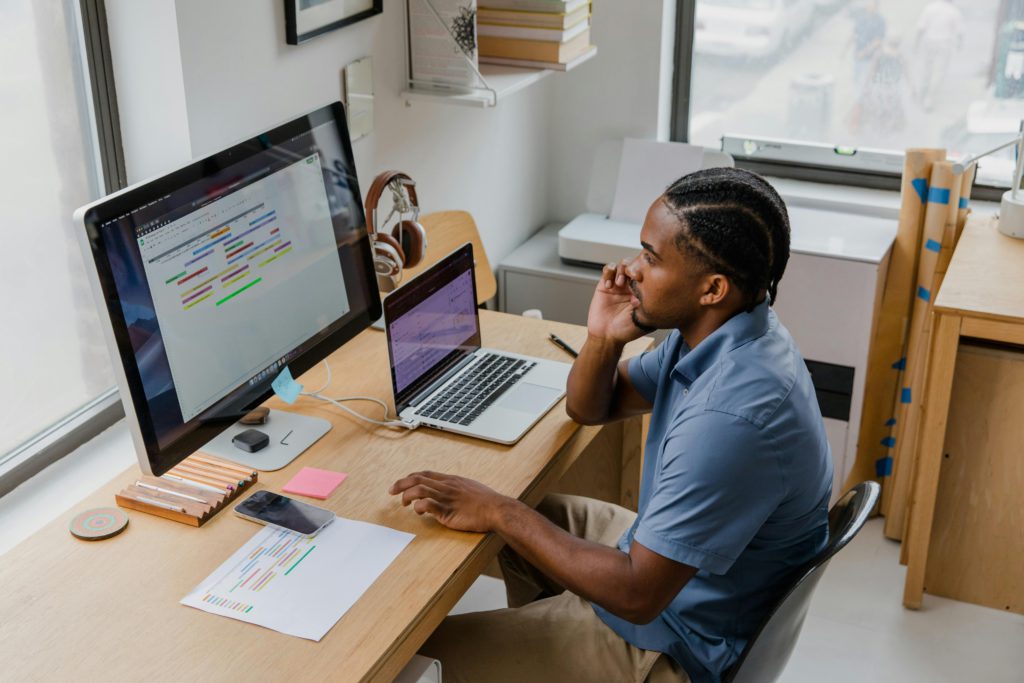Finding a new idea can be tricky. Where do you start when you feel empty? Going back to the beginning can sometimes help, and stopping the pressure. Don’t force it.

Whether you’re a seasoned musician or a budding artist, the process of brainstorming ideas for your next music track can be both exhilarating and challenging. In this article, we’ll explore some friendly tips and tricks to help you dive deep into the reservoir of your creativity and bring forth a symphony of ideas.
Set the mood
Begin by creating a peaceful environment where you have no distractions. Find a quiet space, light some candles, or play music that inspires you. A relaxed and focused mind is more likely to generate innovative ideas. You need to be able to zone out of the world around you and focus on what inspires you.
Draw Inspiration from daily life
The world around you is a treasure trove of inspiration. Take a stroll in the park, people-watch at a café, or immerse yourself in the sounds of nature. Everyday experiences can serve as the building blocks for unique musical compositions. You can write about things you witness, or lessons you learn along the way in life.
Experiment with genres
Don’t be confined to a specific genre. Blend different styles to create a fusion that resonates with your vision. Mix and match elements from various genres to craft a track that’s uniquely yours. Just because one genre might suit your voice, or might be your favourite, doesn’t mean others can’t be introduced.
Tap into emotions
Music is a powerful expression of emotions. Reflect on your feelings and experiences; channel them into your music. Whether it’s joy, sadness, or nostalgia, infusing your track with genuine emotions adds depth and authenticity. It makes your music feel real, and this is what listeners want. They want to relate to you.
Collaborate with others
Two heads are often better than one. Collaborate with fellow musicians or producers to exchange ideas and perspectives. The addition of different creative minds can result in a track that transcends individual limitations. They might have ideas you’d never have considered, and vice versa. It could be what you both need.
Create a mind map
Visualise your ideas by creating a mind map. Start with a central theme or concept and branch out into different musical elements such as melody, rhythm, and instrumentation. This visual representation can guide your creative process. You can refer back to it at any stage. Adding to it as you go. This could be your starting point.
Limitations can inspire
Embrace limitations as opportunities. Set constraints on yourself, such as using only a specific set of instruments or composing within a particular time signature. These limitations can spark ingenuity and push you beyond your comfort zone. Remember, a comfort zone doesn’t always allow for growth, so don’t be afraid to step out of it.
Listen to varied music
Expand your musical palette by listening to a diverse range of genres. Exposing yourself to different styles can provide fresh perspectives and ideas that you can incorporate into your own work. Again, don’t always stick with what you know best. Allow yourself to feel parts of other songs. Let yourself be inspired.
Record rough sketches
Don’t wait for the perfect melody to materialise in your mind. Record rough sketches of your ideas, even if they’re not fully formed. These snippets can serve as the foundation for future compositions. You could even end up adding some of them to your final piece. You’ll know when you start whether it is the right direction for you or not.
Trust the process
Lastly, trust the creative process. Allow yourself the freedom to explore, make mistakes, and refine your ideas. The journey of brainstorming is as important as the destination. It’s ok to return to the drawing board every now and again. If something isn’t working, change it or cut ties. Things will work out eventually.
In conclusion, the key to brainstorming ideas for your next music track is to unlock the doors of your imagination and let the melodies flow. Remember, there are no rules in creativity – only possibilities waiting to be explored. Give yourself a break, and stop applying too much pressure, otherwise you’ll never feel inspired.






